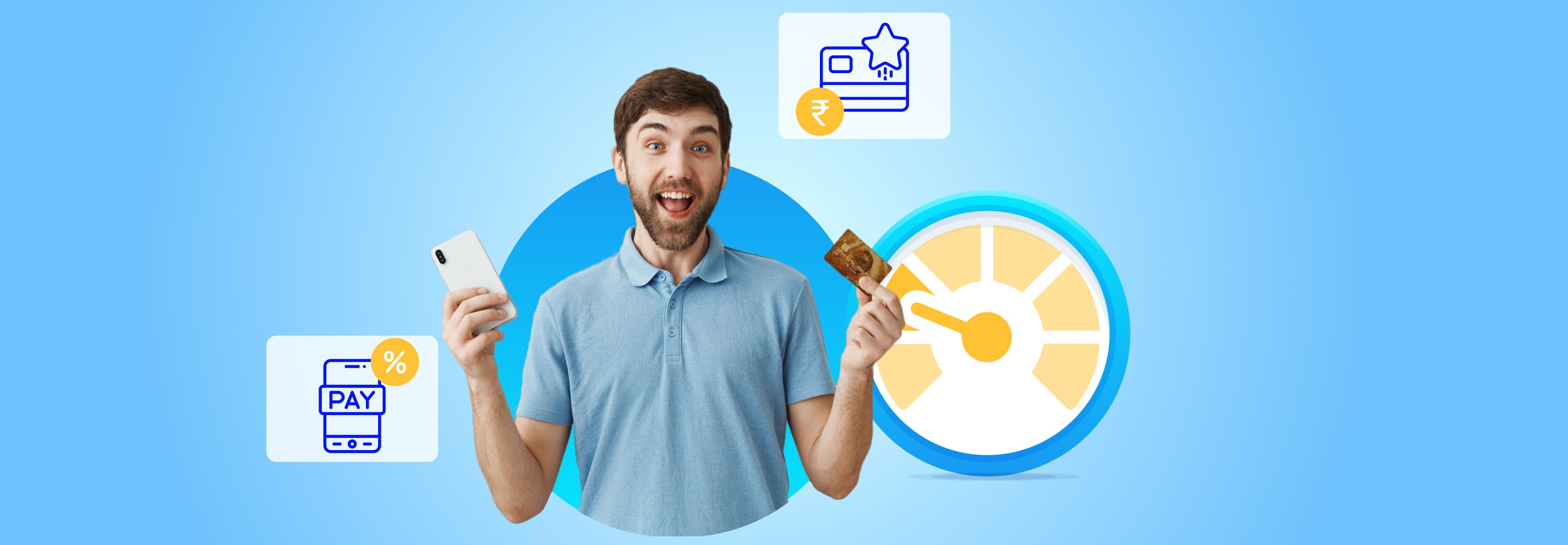
Credit cards are a great tool to access credit and make purchases, but they also come with a downside - the dreaded debt. As the saying goes, “With great power comes great responsibility”, it holds true especially for credit cards. They require responsible spending habits and a repayment plan from your side.
If not, it can hamper your credit scores and possibly lead to debt. However, simple strategies can help you get out of your credit card debt effectively and faster. Keep reading to learn how to settle your credit card debt and be at financial peace.
The first rule of credit card payments is to know your due dates to avoid paying additional charges or late payment fees. The ideal approach is to write them all down for better clarity and planning.
When you have all the numbers, including the interest rates, annual fees, bill amount, and due dates, you have a clear picture of what’s urgent. It is advisable to always pay off the debt with the highest interest rates first rather than the one with the highest bill amount.
Now that you know your numbers, it's time to build a proper payment plan. You must prioritise certain debts over others based on urgency and available funds. Many banks and financial institutions offer an option to pay a minimum amount to avoid late payment charges. However, remember that interest charges may set you off, so the faster you repay, the less interest you will incur, allowing you to repay your debt faster.
Also, set a realistic monthly budget. Find out how much you can allocate toward debt repayment without compromising your essential needs. Sticking to this budget will help you pay off your debts effectively and instil better financial discipline.
One of the smartest ways to pay off credit card debt faster is to convert your bills into Equated Monthly Instalments (EMIs). Many credit card issuers offer this facility for free, allowing cardholders to make convenient payments. However, it's always a good idea to double-check with your issuer if they levy a processing fee.
By opting for EMIs, you distribute your payments over several months, making it easier to pay off your debt systematically and promptly. Doing so ultimately allows you to maintain a healthy credit report.
Owning multiple credit cards can lead to debt and financial burdens if not managed properly. That’s when getting a personal loan to combine all your credit card balances into one can be a viable solution.
Depending on your credit history and score, many lenders may offer you a personal loan at an affordable interest rate. The amount may cover your entire credit card due, allowing you to repay your credit card bill in just one payment.
Understanding your billing cycle can be advantageous in multiple ways. A billing cycle is the period between two billing statements, and it may vary from issuer to issuer, ranging between 27 to 31 days. At the end of each billing cycle, a statement is released, combining all the transactions held and the due date to make the payment.
However, many banks or credit card companies offer a grace period—a time window between the end of a billing cycle and the due date. If the bill is paid during this period, the credit card holder can successfully avoid late payment fees and enjoy a maximum interest-free period.
Applying for multiple credit cards is the perfect recipe for getting into unnecessary debt. Not everyone is a finance guru who manages their money like a professional, so managing multiple credit cards can lead to debt.
Multiple credit cards mean multiple bills and, thus, multiple deadlines. Missing out on multiple due dates can often trap you in multiple debts. Multiple problems! So, don’t let yourself sway with multiple credit card offers and apply for too many or spend too much on non-essentials.
For many, making timely credit card repayments may seem like a goal. However, automating credit card bill payments can help you achieve this goal. Many banks, financial institutions, and credit card issuers offer this facility, allowing you to make timely payments and avoid unnecessary penalty charges.
Suppose you’re travelling, facing technical issues, or have trouble remembering your due dates. In that case, auto payments deduct your due amount directly from your bank account, so you won't have to worry about any due dates.
Applying for another credit card may not be the perfect solution when discussing the credit card settlement process. However, it is an opportunity for credit card holders to save a considerable amount on interest rates.
By opting for balance transfer credit cards, you can transfer the balance from a high-interest credit card to one with a lower interest rate. You can also choose to pay in instalments, and if your loan tenure is shorter, you may not even have to pay any interest.
Online platforms like Quid offer various credit cards from leading financial institutions that align with your financial goals and capacity. However, as a credit card holder, you must make timely payments, stay within your credit limit, and manage your finances.
By diligently following the above strategies, you can clear your credit card debt faster and avoid falling into one altogether. All you need is a bit of discipline, planning, and smart financial decisions to take control of your finances and pave the way to a debt-free future.
Get credit at first sight and be closer to your goals.
Download Now